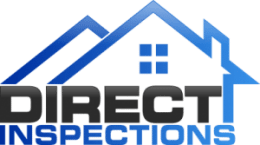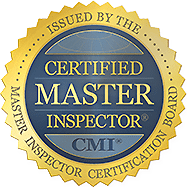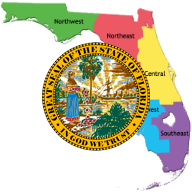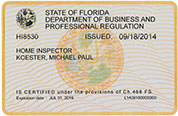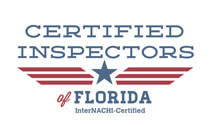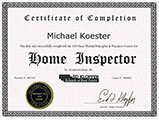Septic Systems
In the Sarasota and Manatee region, septic systems are commonly found in coastal and rural areas that have not yet been hooked up to the public sewer system. A septic system is a self-contained, highly efficient underground waste water treatment system. The function of a septic system is to treat and then disperse the waste water from individual private homes or commercial buildings. Responsibility for regulating the system usually belongs to state or local municipal authorities. These organizations, as well as homeowners, rely on information and assistance from the Environmental Protection Agency (EPA) to better maintain and manage septic systems with the aim of preventing failures that could prove detrimental to water quality and, ultimately, human health.
Information for Homeowners
The responsibility for maintaining the septic system of a private home rests with the homeowner. With the proper maintenance techniques, you can ensure the proper working order and longevity of your home’s septic system, and this will allow you to protect the investment that you made in your home.
Unfortunately, failed septic systems are altogether not so uncommon. They have the potential to contaminate ground water used not only by the people inside the home, but also nearby residents. It is even possible for the untreated water to contaminate water bodies like rivers and lakes close to the home.
Steps To Keep Your Septic System In Good Working Order
- Identify the location of the septic tank and its drain field. Make a drawing of the location layout and keep it with your house records.
- Regularly have the system inspected. Once every three years is adequate in most cases.
- Have the septic tank pumped once every three to five years.
- Avoid disposing of hazardous waste in the toilet or sinks inside the home.
- Avoid disposing of other household waste like diapers, pet waste, prophylactics, feminine hygiene products and dental floss inside the home.
- Make efficient use of water.
- Because roots from trees and shrubs can damage and interfere with the good working order of a septic system, avoid planting them near it. Also avoid the use of fertilizers and manure over the drainfield.
- Excess weight can compact soil and interfere with the drainage system; keep livestock and vehicles away from the area above it.
- Ensure that basement sump pumps and gutters do not drain near the septic system.
- Only use additives after obtaining prior approval from the local health department. Remember that additives may be harmful and that you will still need to perform periodic pumping of the system when you make use of them.
Understanding the Septic System
Each septic system has four essential components: a drainage system from the home, the septic tank, a drainfield, and the surrounding soil.
The drainage pipe(s) lead to the septic tank which is buried in the soil. It is a watertight container most often made of concrete, polyethylene or fiberglass. The tank holds the water long enough for the waste components of different densities to separate – the grease and oil rise to the surface as scum while the solids form a sludge. This environment is also conducive for the decomposition of solid waste. The tank is designed with compartments and screens so that the sludge and scum cannot escape it and leak into the drainfield.
The liquid waste leaves the septic tank and enters the drain field in the soil. The soil contains microbes that digest most of the contaminants before they have a chance to reach the groundwater. Micro-organisms present in the soil also contribute to the process by removing harmful viruses and bacteria.
Your Septic Tank, Your Responsibility
If you are in the process of purchasing a home with a septic system, it is a good idea to have it professionally inspected. A damaged or failed septic system costs thousands of dollars to replace. Once you have purchased the home, the responsibility for keeping the septic tank in good working order rests squarely on the shoulders of the homeowner. After all, a good septic system contributes overall value to your home investment.
Homeowners should regularly inspect their septic systems and have it pumped. A well-designed, constructed and maintained system will provide effective waste treatment over the long term. On the other hand, poor maintenance may lead to a need for the system to be repaired or replaced at the cost of thousands of dollars.
Aside from the obvious financial disadvantage, a faulty septic system can contaminate the groundwater near it, affecting the health of residents of the home and that of neighbors as well.
Regular Maintenance and Pumping The entire septic system must be inspected by a suitably-qualified professional every three years. The tank itself must be pumped every three to five years, or as necessary.
Efficient Use of Water
The efficient use of water contributes to a healthy septic system. This is because when less water is wasted, a larger volume is able to enter the septic system.
A typical family uses 70 gallons of water per person every day. In a year, a leaky faucet can waste approximately 2,000 gallons of water while a running toilet can waste an incredible 200 gallons in just a single day.
Be Careful What You Flush
A septic system is a living, breathing unit that requires a chemical balance to function optimally. The introduction of chemicals into the system has the ability to upset this balance and interfere with the efficiency of the entire system or cause it to fail altogether.
Household cleaning chemicals, pesticides, oil and paint have the potential to have an adverse effect on your system as well as the surrounding soil and groundwater.
Besides chemicals, non-biodegradable objects like dental floss, cotton buds and feminine hygiene products may also damage the septic system and cause it to malfunction or fail.
3 Simple Ways to Maintain Your Septic System
- Avoid planting shrubs and trees near the drain field – the roots may interfere with or damage it. Only grass is suitable for the areas above and around it.
- Keep the area above the septic system clear of vehicles, including just driving over it. Large weights compact the soil and this interferes with the sewage treatment process.
- Ensure that rainwater and drainage water from the house does not flow into the area where the drainfield is located. Excess water here will decelerate the treatment process and might even cause plumbing in the home to back up.
The old adage Prevention is better than cure’ applies perfectly to septic systems – the cost of regular maintenance is far less than the cost of repair or replacement. Moreover, a failed system will lower the value of the property and may even attract legal penalties.
The other pertinent reason for maintenance is health – a good sewage system lowers the risk of infections that are caused by harmful organisms and chemicals present in waste products. Phosphorous and nitrogen found in waste products are a boon for algae. High nitrate concentrations also contribute to pregnancy complications.
